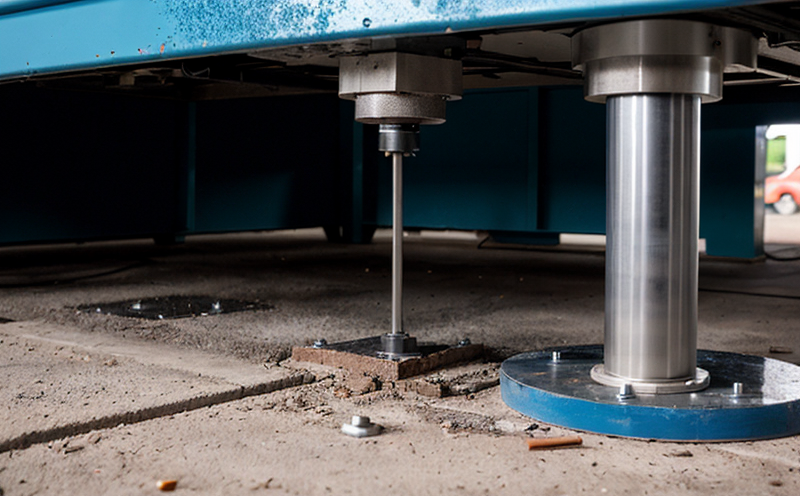ISO 17296-4 Distortion and Stress Characterization in AM Processes
The ISO 17296 series is a comprehensive set of standards that cover various aspects of additive manufacturing (AM). Specifically, ISO 17296-4 focuses on the distortion and stress characterization in AM processes. This standard provides critical insights into the quality assurance and process optimization for parts manufactured using direct metal laser sintering (DMLS), selective laser melting (SLM), and other similar technologies.
Residual stresses and distortions are inherent challenges in AM, which can significantly affect part performance and reliability. Understanding these factors is crucial for industries like aerospace, automotive, medical devices, and electronics where precision and durability are paramount. This service leverages advanced testing methodologies to ensure that manufacturers meet stringent quality standards and regulatory requirements.
Our laboratory adheres strictly to ISO 17296-4, utilizing state-of-the-art equipment to measure residual stresses and distortions accurately. The process involves meticulous specimen preparation, precise measurement techniques, and robust data analysis to provide comprehensive results. By offering this service, we support clients in optimizing their AM processes for better part quality and reduced production costs.
The ISO 17296-4 standard provides a structured approach to characterizing distortion and stress in additive manufactured parts. It outlines the necessary steps for sample preparation, measurement methods, data analysis, and reporting. The process begins with selecting an appropriate specimen that represents the part's geometry and material properties accurately.
Once prepared, the specimens undergo non-destructive testing (NDT) using techniques such as X-ray diffractometry (XRD), computed tomography (CT), or laser-induced breakdown spectroscopy (LIBS). These methods allow for detailed examination of internal stresses without damaging the part. After measurement and data collection, the results are analyzed to determine the extent and distribution of residual stresses and distortions.
The final step involves reporting the findings in accordance with ISO 17296-4 guidelines. This report serves as a valuable tool for process optimization, ensuring that parts meet the required specifications. By adhering strictly to this standard, we provide accurate and reliable data that can be used to improve manufacturing processes and enhance product quality.
Our expertise in AM testing allows us to offer comprehensive solutions tailored to individual client needs. With our advanced equipment and experienced personnel, we ensure that every test is conducted with precision and care. This commitment to excellence ensures that clients receive accurate results that can drive informed decisions regarding their manufacturing processes.
Scope and Methodology
| Process Step | Description |
|---|---|
| Sample Preparation | Selection of appropriate specimens that represent the part's geometry and material properties. |
| Measurement Techniques | Use of X-ray diffractometry (XRD), computed tomography (CT), or laser-induced breakdown spectroscopy (LIBS). |
| Data Analysis | Analysis of collected data to determine the extent and distribution of residual stresses and distortions. |
| Reporting | Compilation of results in accordance with ISO 17296-4 guidelines for process optimization and quality assurance. |
The scope of this service includes the entire lifecycle of distortion and stress characterization, from sample preparation to final reporting. Our team ensures that each step is conducted with precision and adherence to industry standards.
Eurolab Advantages
- State-of-the-art facilities equipped with advanced testing equipment.
- Dedicated experts with extensive experience in AM process optimization.
- Comprehensive quality assurance services for additive manufactured parts.
- Strict adherence to ISO 17296-4 and other relevant international standards.
- Precision and reliability of test results, ensuring accurate data for informed decisions.
At Eurolab, we pride ourselves on providing top-tier services that meet the highest industry standards. Our advanced facilities and experienced personnel ensure that every test is conducted with precision and care, delivering reliable and actionable insights to our clients.
Use Cases and Application Examples
| Industry Sector | Application Example |
|---|---|
| Aerospace | Testing of engine components to ensure optimal performance. |
| Automotive | Validation of structural integrity in high-stress areas. |
| Medical Devices | Assessment of biocompatibility and mechanical properties. |
| Electronics | Detection and mitigation of microstructural defects. |
Our services are designed to meet the diverse needs of various industries. From aerospace companies ensuring engine reliability to medical device manufacturers assessing biocompatibility, our comprehensive testing ensures that additive manufactured parts meet stringent quality standards. By leveraging ISO 17296-4, we provide accurate and reliable data that can drive informed decisions in all these sectors.
- Engine components for optimal performance.
- Structural integrity validation in high-stress areas.
- Biocompatibility assessment of medical devices.
- Detection and mitigation of microstructural defects in electronics.
The versatility of our services allows us to cater to the specific requirements of each industry, ensuring that every part manufactured through AM processes meets the highest quality standards. This approach not only enhances product reliability but also contributes to cost savings by optimizing manufacturing processes.





